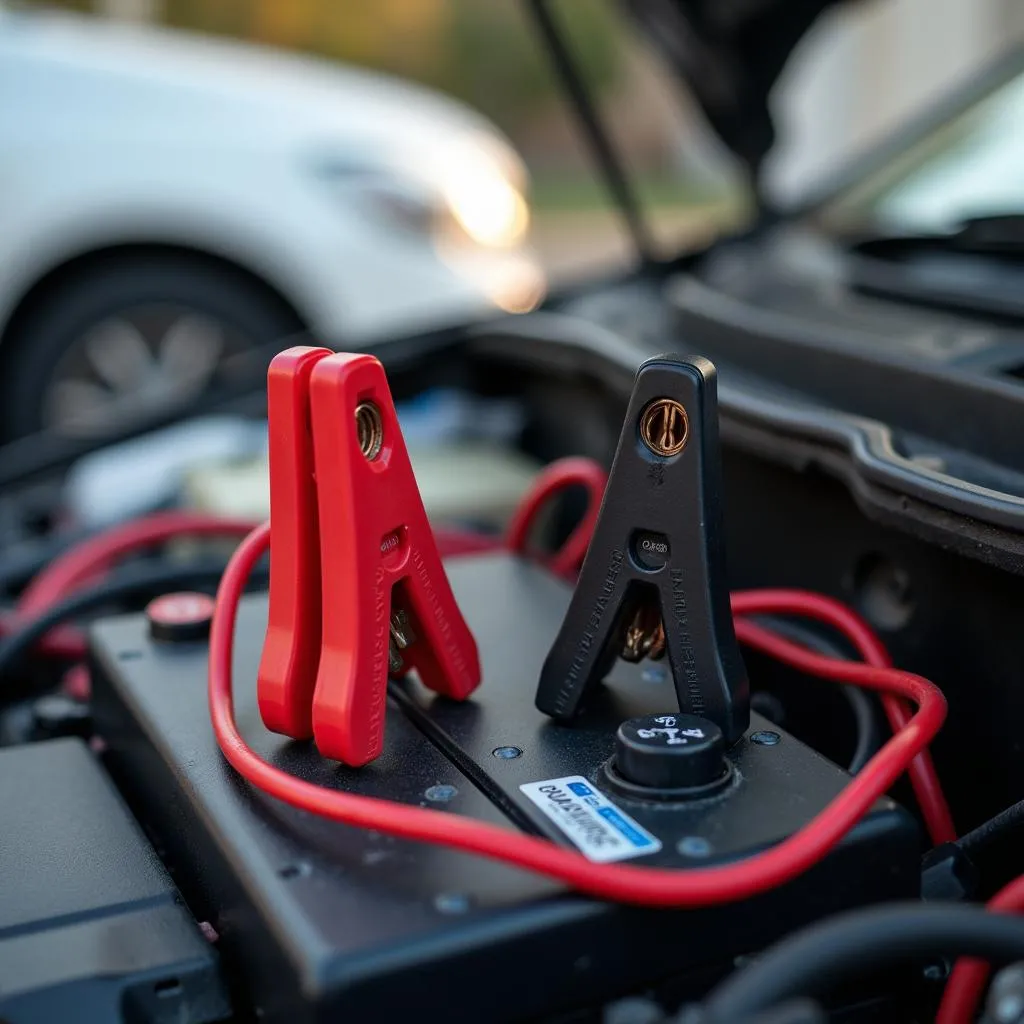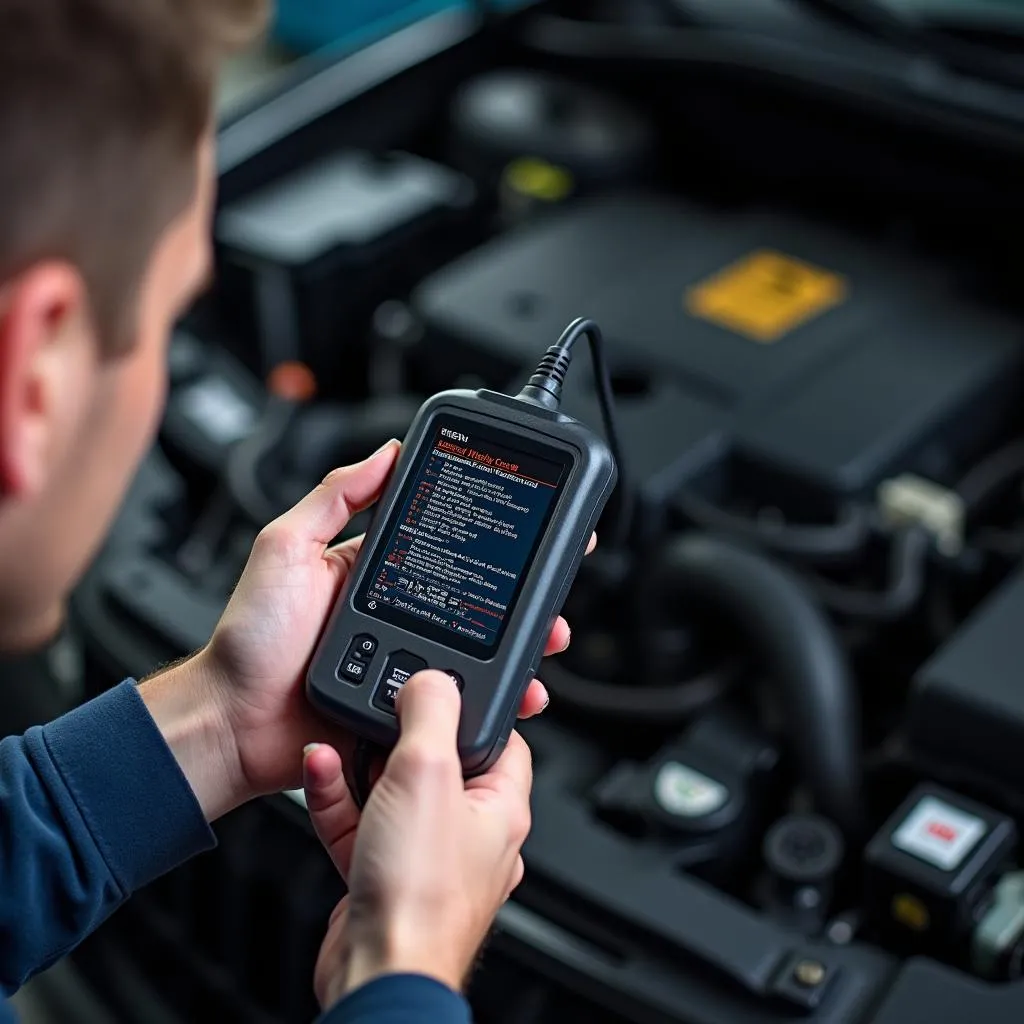“Ugh, not again!” Have you ever uttered those words while turning the key in your ignition, only to be met with silence? That sinking feeling of being stranded is all too familiar to many car owners. But fear not, because today we’re diving deep into the common reasons why your car might refuse to start.
The Heart of the Matter: Understanding Why Your Car Won’t Start
From a mechanic’s perspective, a car that won’t start is like a patient who can’t communicate their symptoms. We have to play detective, using our knowledge and tools like Dealer Scanner for European Cars to diagnose the issue. It’s not just about getting you back on the road; it’s about understanding the intricate systems of your vehicle.
Technically speaking, starting your car involves a complex dance between the battery, starter, and engine. When you turn the key, the battery sends power to the starter motor, which in turn cranks the engine, bringing it to life. A breakdown in any of these components can leave you stranded.
Beyond the technicalities, a car that won’t start can throw a wrench into your entire day, impacting your work, your family, and your wallet. It’s a reminder of how reliant we are on our vehicles.
Common Culprits: Identifying the Reasons Behind Your Car Troubles
Let’s explore some frequent offenders that prevent your car from starting:
1. Dead Battery: The Usual Suspect
Imagine you’re about to leave for a road trip to Yosemite National Park, bags packed, and ready for adventure. But as you turn the key, you’re greeted with a disheartening click. A dead battery is often the culprit in such situations. It could be due to a drained battery from leaving your lights on overnight or a failing alternator that isn’t recharging the battery properly.
2. Starter Motor Failure: The Engine’s Unsung Hero
Ever heard a grinding noise when trying to start your car? It could signal a failing starter motor. Just like any hardworking component, starter motors have a lifespan and can wear out over time.
3. Fuel System Issues: No Fuel, No Go
Picture this: you’re cruising down Sunset Boulevard in your classic Chevrolet Corvette, but suddenly, the engine sputters and dies. While there could be various reasons for this, a common one is a lack of fuel reaching the engine. This could be due to a clogged fuel filter, a malfunctioning fuel pump, or even simply running out of gas!
4. Ignition System Problems: Sparking the Engine to Life
Remember those old movies where they hotwire cars? The ignition system is what they were manipulating. A faulty ignition switch, a worn-out ignition coil, or problematic spark plugs can all disrupt the spark needed to ignite the fuel in your engine.
5. Sensor Malfunctions: The Brains Behind the Operation
Modern cars are equipped with numerous sensors that relay vital information to the engine control unit (ECU). A malfunctioning sensor, such as the crankshaft position sensor or camshaft position sensor, can disrupt this communication, leading to starting problems.
 Car Battery Jump Start
Car Battery Jump Start
Getting You Back on Track: Troubleshooting and Solutions
Now that we’ve identified some common culprits, let’s explore how to address these issues:
Jumpstarting a Dead Battery:
If a dead battery is the cause, jumpstarting your car using jumper cables and a good Samaritan’s vehicle can be a temporary fix. However, it’s crucial to get your battery and charging system checked by a mechanic to diagnose the underlying cause.
Addressing Starter Motor Issues:
A failing starter motor usually requires professional attention. A mechanic can diagnose the problem and replace the starter motor if necessary.
Tackling Fuel System Problems:
For fuel-related issues, checking your fuel gauge is a good starting point. If you have fuel but suspect a blockage or pump failure, it’s best to consult a mechanic.
Resolving Ignition System Troubles:
Ignition system problems can be tricky to diagnose without proper tools and expertise. If you suspect an ignition system issue, it’s advisable to seek professional help.
Handling Sensor Malfunctions:
Sensor issues often require specialized diagnostic equipment. A mechanic can read the error codes stored in your car’s computer, pinpoint the faulty sensor, and replace it.
 Mechanic Diagnosing Car Problem with Scanner
Mechanic Diagnosing Car Problem with Scanner
Frequently Asked Questions: Addressing Your Concerns
Here are some common questions car owners have when faced with a stubborn vehicle:
Why does my car make a clicking sound but won’t start?
A clicking sound often indicates a weak or dead battery. It could also be a sign of a failing starter motor struggling to engage.
Can leaving my car lights on overnight drain the battery?
Yes, leaving your headlights, interior lights, or any other electrical components on for extended periods can drain your car battery.
How often should I replace my car battery?
Car batteries typically last between 3 to 5 years, but factors like climate and driving habits can affect their lifespan.
Can I drive my car with a jump start, or should I get it towed?
While jumpstarting can get you going temporarily, it’s essential to address the underlying cause of the battery drain. Driving with a jump start might leave you stranded again and could potentially damage other electrical components.
Need More Help? We’re Here for You!
Still, have questions or need expert assistance with your car troubles? Don’t hesitate to contact us via WhatsApp at +84767531508. Our team of automotive specialists is available 24/7 to provide guidance, answer your questions, and help you get back on the road safely.
Exploring Further: Related Resources
For more information on car maintenance and troubleshooting, check out these articles:
- My Car Won’t Start: A comprehensive guide on common starting problems.
- How Many Volts Should a Car Battery Have: Understanding your car battery’s voltage and its implications.
- Car Cranks But Won’t Turn Over: Exploring the difference between cranking and starting, and the reasons behind a no-start situation.
Remember, a little knowledge goes a long way when it comes to car maintenance. By understanding the potential causes behind a car that won’t start and taking the appropriate steps, you can save yourself time, money, and unnecessary stress. Safe travels!


